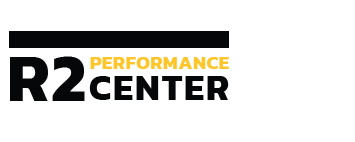

Four Strategies to Boost Your Confidence
Confidence is your belief in your ability to accomplish a given task. Being confident is associated with greater psychological well-being, increased motivation and prolonged persistence in tasks, as well as a greater likelihood of successful behavior change. Here are four ways to boost your confidence.
Learn from past mistakes and failures by framing them in a way that teaches you how to do better in the future.
When we lack confidence in our abilities, we tend to stop ourselves from doing something, and this limits our capacity to be more confident.
Consider an activity you’d like to be more confident in that would make a positive impact on your life, such as public speaking, mountain biking or being more social on the weekends. Break up this pursuit into separate parts. Take the least scary part and do it. Then repeat it. Each attempt will increase your confidence, whether you’re great at it or need improvement.
Deliberately gain vicarious experience to start increasing your confidence.
Find others who are similar to you in skill level who have done what you are trying to do. Speak with them and learn from their experience to boost your confidence.
Know your physical and emotional state to improve your performance.
Your physical state can negatively or positively affect your confidence. If you are in the best shape of your life and are about to run a marathon, your confidence will be high. Being sick or tired, though, will negatively affect your confidence.
Similarly, your emotional state affects your confidence. Anxiety is an emotion that tends to drain our confidence the most. When we are anxious, we tend to focus on what might go wrong within a given task, thinking, "How might I look bad? How might I get hurt? How might I fail?"
But anxiety can also be a helpful emotion for better performance, as it often motivates us to act. For example, it can prompt us to prepare more for a given task or make us more alert, helping us to see and pay attention to what’s important. If we’re able to interpret that anxiety in a helpful way, we can raise our confidence.
Use self-talk to gain awareness of what you are saying to yourself so you can understand what builds up or reduces your confidence.
Self-talk refers to what you say to yourself, or your inner monologue. This can be influenced by what others tell us, for better or for worse. With confidence, it’s not about eliminating uncertainty and doubt but, rather, increasing your belief in yourself as much as possible. Self-talk is often left unchecked and free to run wild. With practice and deliberation, you can harness it and steer it in a more productive direction.
Resources
Watch VideoDownload Infographic
MORE SKILLS
